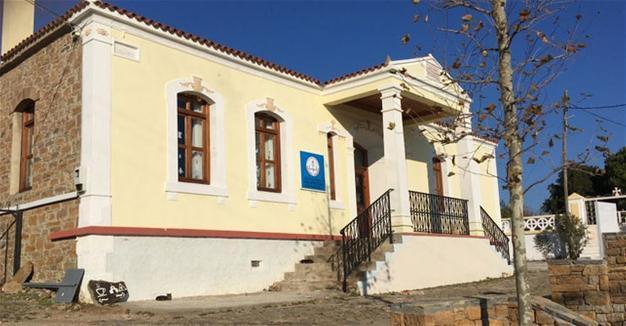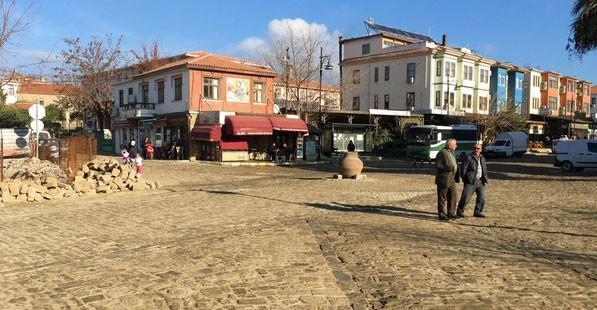Families from Greece return to Turkey’s Gökçeada after schools open
ISTANBUL
 Fifteen families from Greece’s Athens, Thessaloniki and Crete have moved back to the Turkish island of Gökçeada over the last two years, following the reopening of schools on the northwestern Aegean island, the Agos newspaper has reported.
Fifteen families from Greece’s Athens, Thessaloniki and Crete have moved back to the Turkish island of Gökçeada over the last two years, following the reopening of schools on the northwestern Aegean island, the Agos newspaper has reported. This year, 26 students are enrolled in the island’s secondary school and high school, up from 11 in the first year after reopening.
The primary school in the island’s Zeytinli village, which had been abandoned after 1964, when all Greeks schools there were closed, was re-opened thanks to efforts of locals and after permission from Turkey’s Education Ministry.
Before the 1964 ruling, there were six primary schools, one middle school and three pre-schools on the island, where some 730 children were at school, Agos reported. The closure resulted in a wave of migration to Greece, with only a small population remaining there.
The first efforts to reopen schools began in 2010, with the first permit being granted in 2012.
Gökçeada, or Imbros in Greek, receives thousands of tourists, including many from Greece, in the summer, and 8,000 people live there in winter.
The construction of a sports facility is ongoing near the new middle and high schools in the village of Tepeköy.
“I want to open an English-Greek language school in Thessaloniki,” Agos quoted one student as saying, “but I love Imbros very much.”
Ninth grade student Panos, who speaks fluent Turkish as he lives in the center of the island and has many Turkish friends, dreams of moving to Istanbul and starting his own business, Agos reported.
It added that the boys on the island hope their number will grow enough to find 11 players for their school football team, which currently only has seven players.

Students in the special schools on Gökçeada receive education crafted for the Greek minority, with a curriculum in the middle and high school almost identical with the state curriculum in Greece but also including Turkish language classes.
Many students said they were happier with their education on Gökçeada compared to education back in Greece, where they said the curriculum was based more on memorization.
There are currently 15 teachers for the 26 Greek students on the island and they receive their salaries from the Athens government.
One of the physics teachers, Dimitris Frangatzi, who came to the island from Xhanti in northeastern Greece, said the terms in Gökçeada were economically better than his conditions in Greece and his family enjoyed the village life.
“I am a childhood friend of Principal [Iokim Makis] Kamburopulos. He told me about the opening of the school and said there was a vacancy for a literature teacher. ‘I don’t know literature but I do know physics,’ I told him,” Frangatzi was quoted as saying by Agos.
Paraşkevi Vula Berber Katakalos, the principal of the Gökçeada Greek Elementary School, opened in 2013, said she was originally from the island and used to work at the Zapyon Greek Elementary School in Istanbul. Having moved to Gökçeada during the school’s opening process, Berber Katakalos encouraged other families to also move back to the island.
“Life [here] used to be more conservative, and people were conservative as well. But over the past 20 years, there have been some developments thanks to the tourism and people have become more open. At the end of the day our habits, hopes and problems are the same. We are opening a new page here,” she was quoted as saying.
Vula Paraskevi, whose daughter and son are in high school, said she and her husband, a truck driver, decided to move to island after six years of unemployment in Thessaloniki. The parents want to settle on the island but Paraskevi said their children want to move back once they have completed school.
Minority Foundations Representative Laki Vingas, who is also the head of the Imbros Education and Culture Association, said the “systematic isolation for the past 50 years” had left its “impact on the identities of the locals.”
“An identity has been shaped on what has been lost in this 50-year period,” Vingas said, adding that he hoped the new generation will “develop an identity that doesn’t only think of the past but also thinks of the future.”
“This is what I always remind myself: None of children should say in the future that ‘I went to Imbros and my dreams were broken.’ That is what I care about,” he said.
















